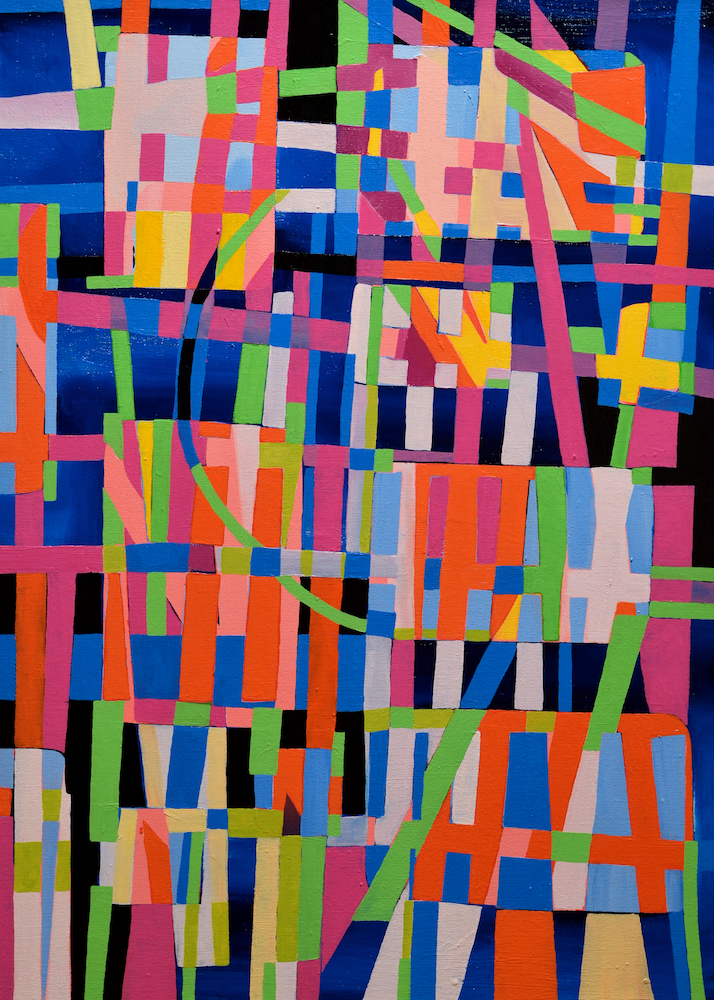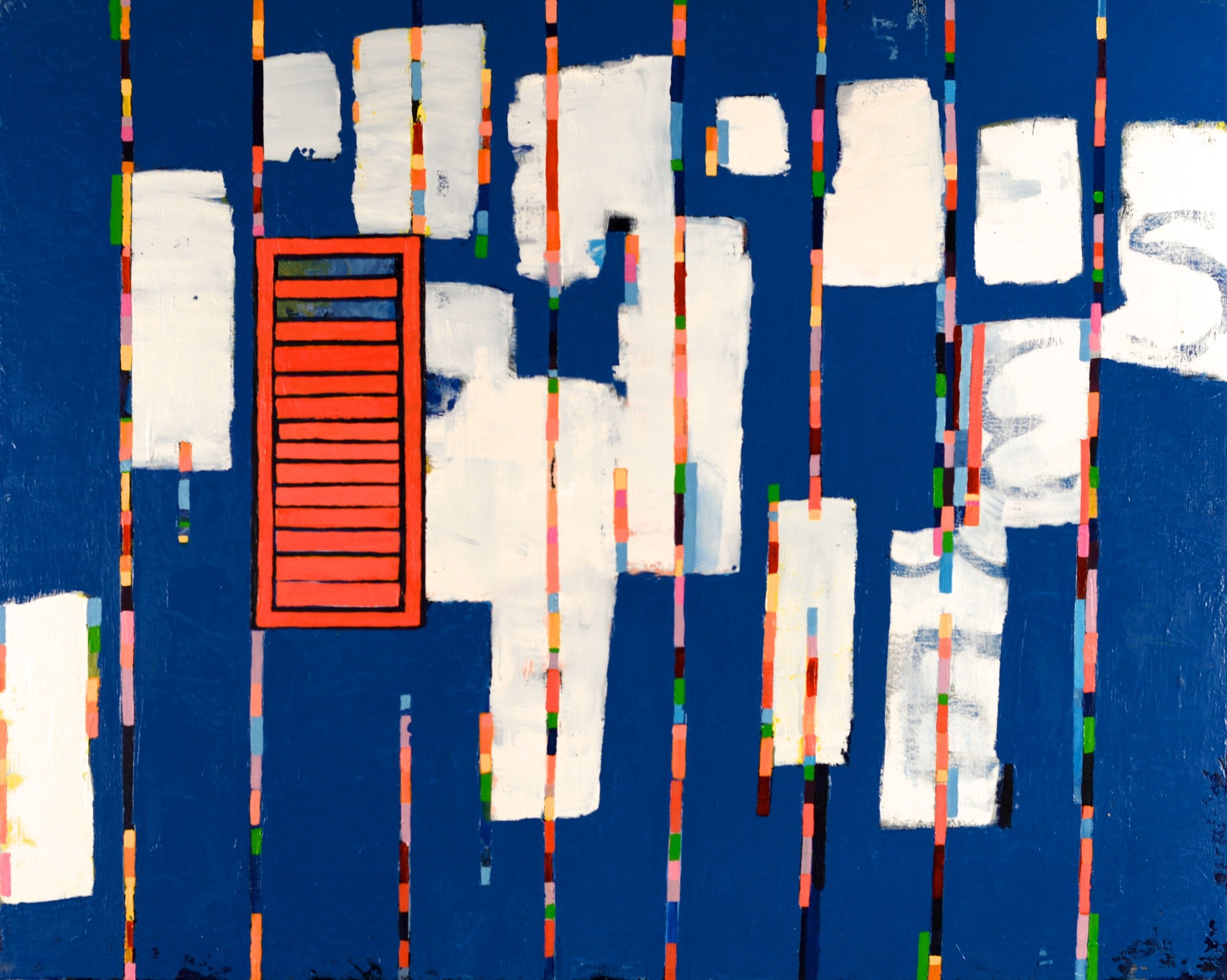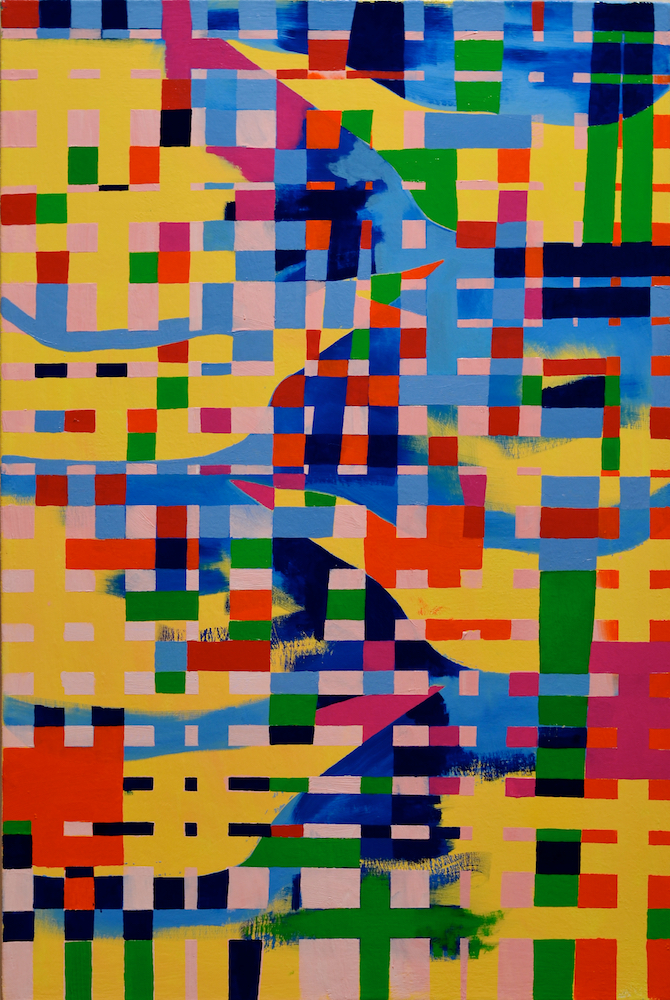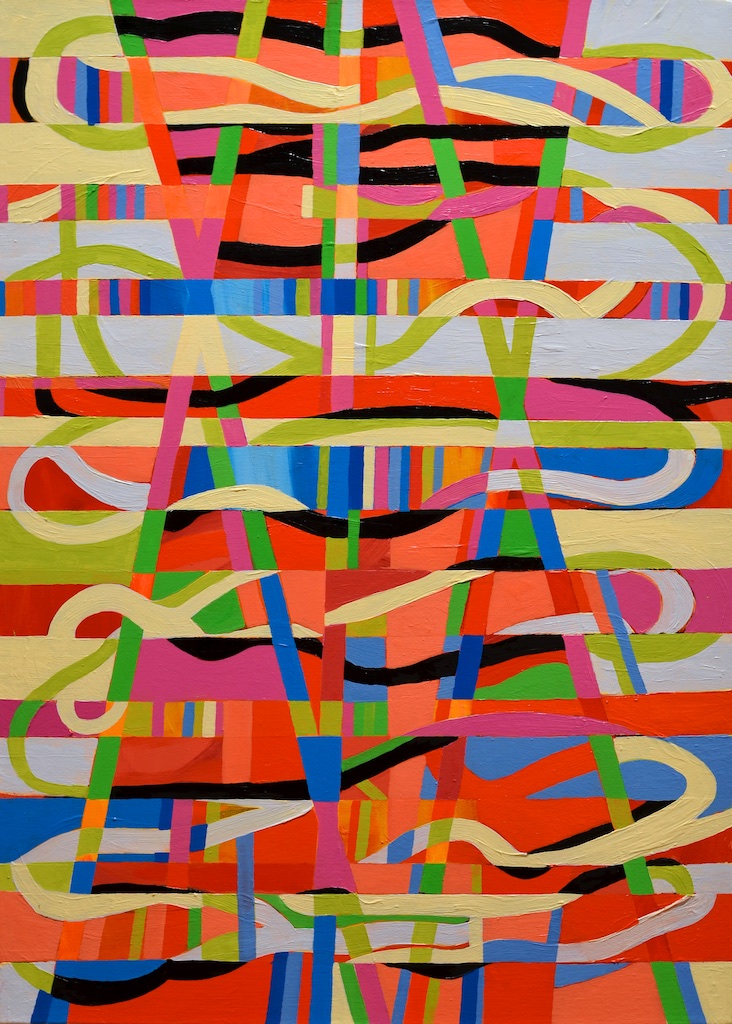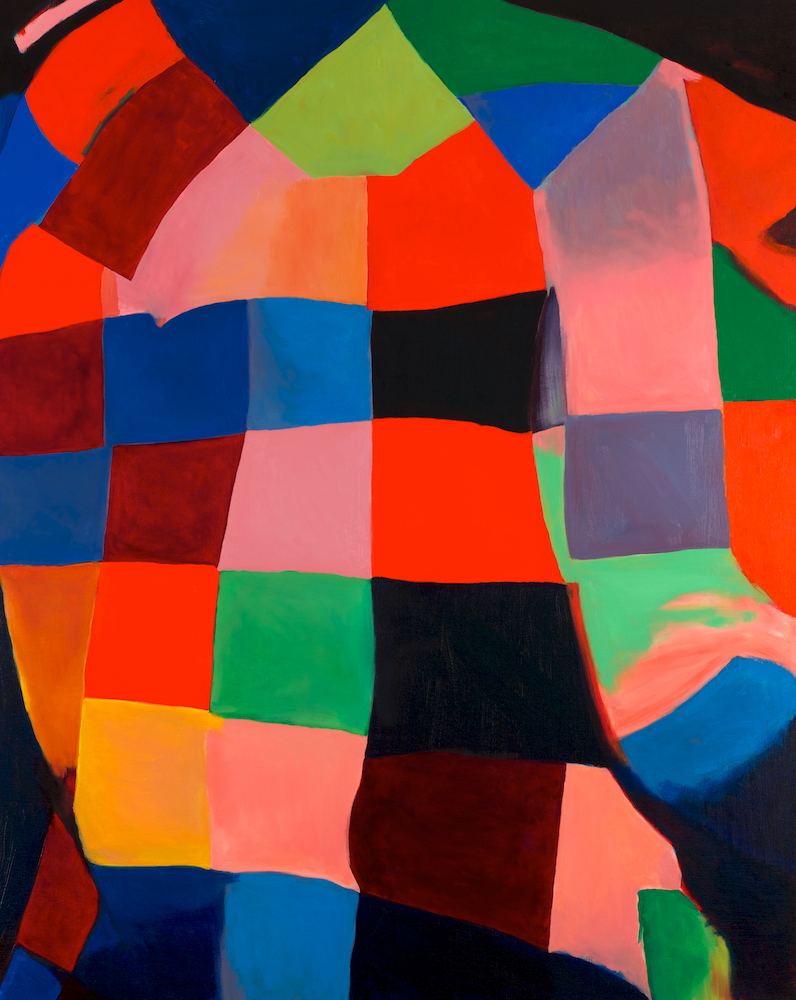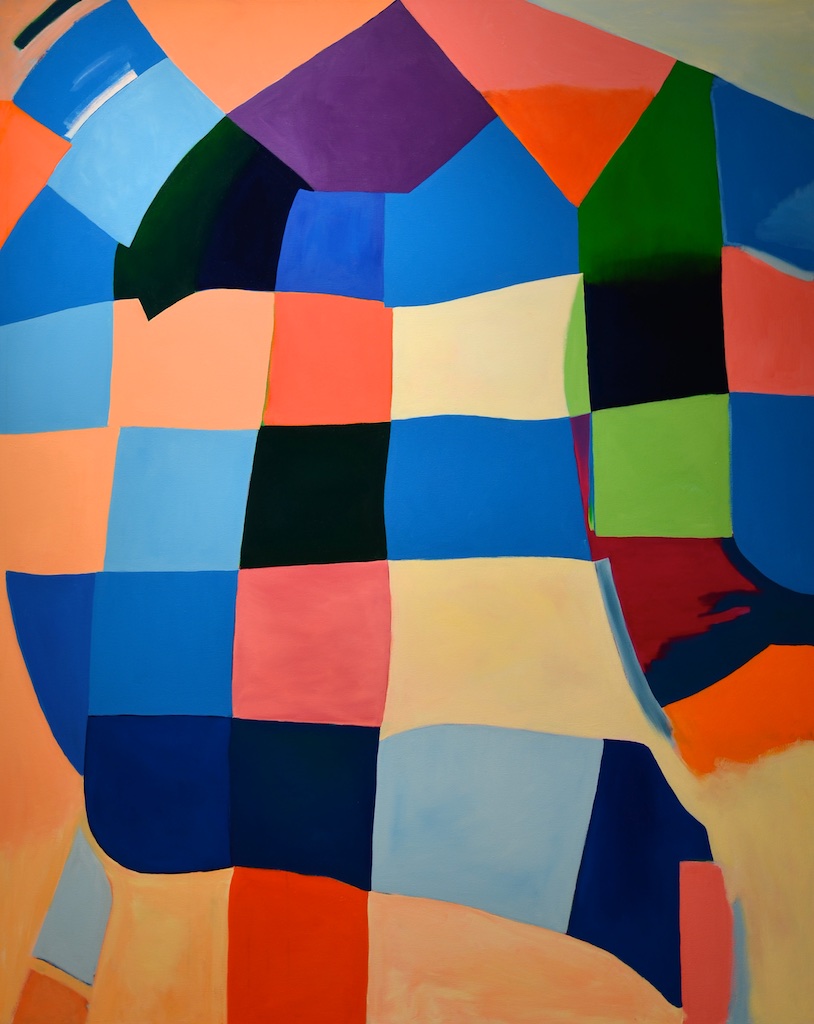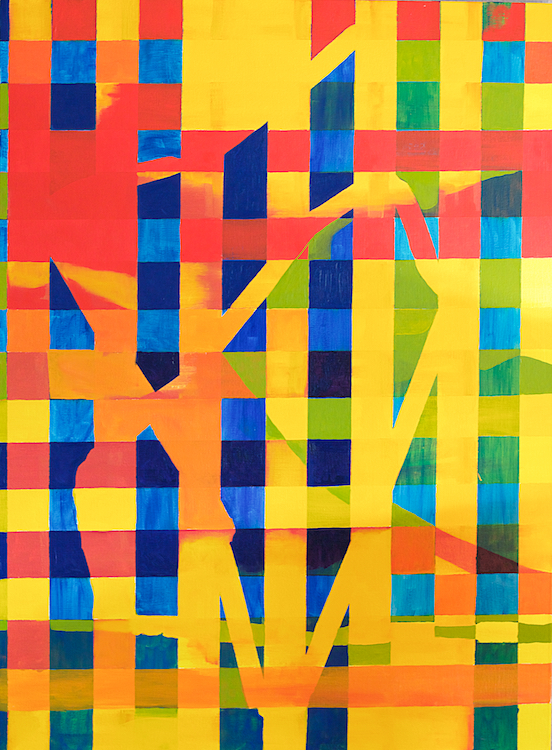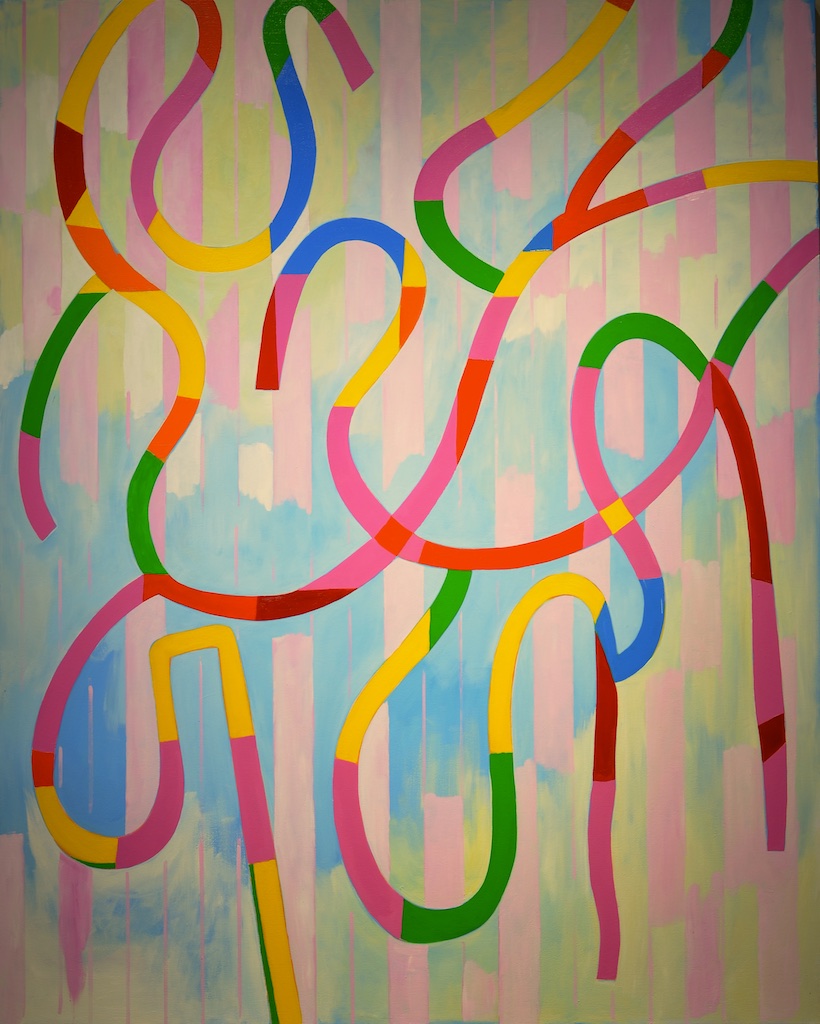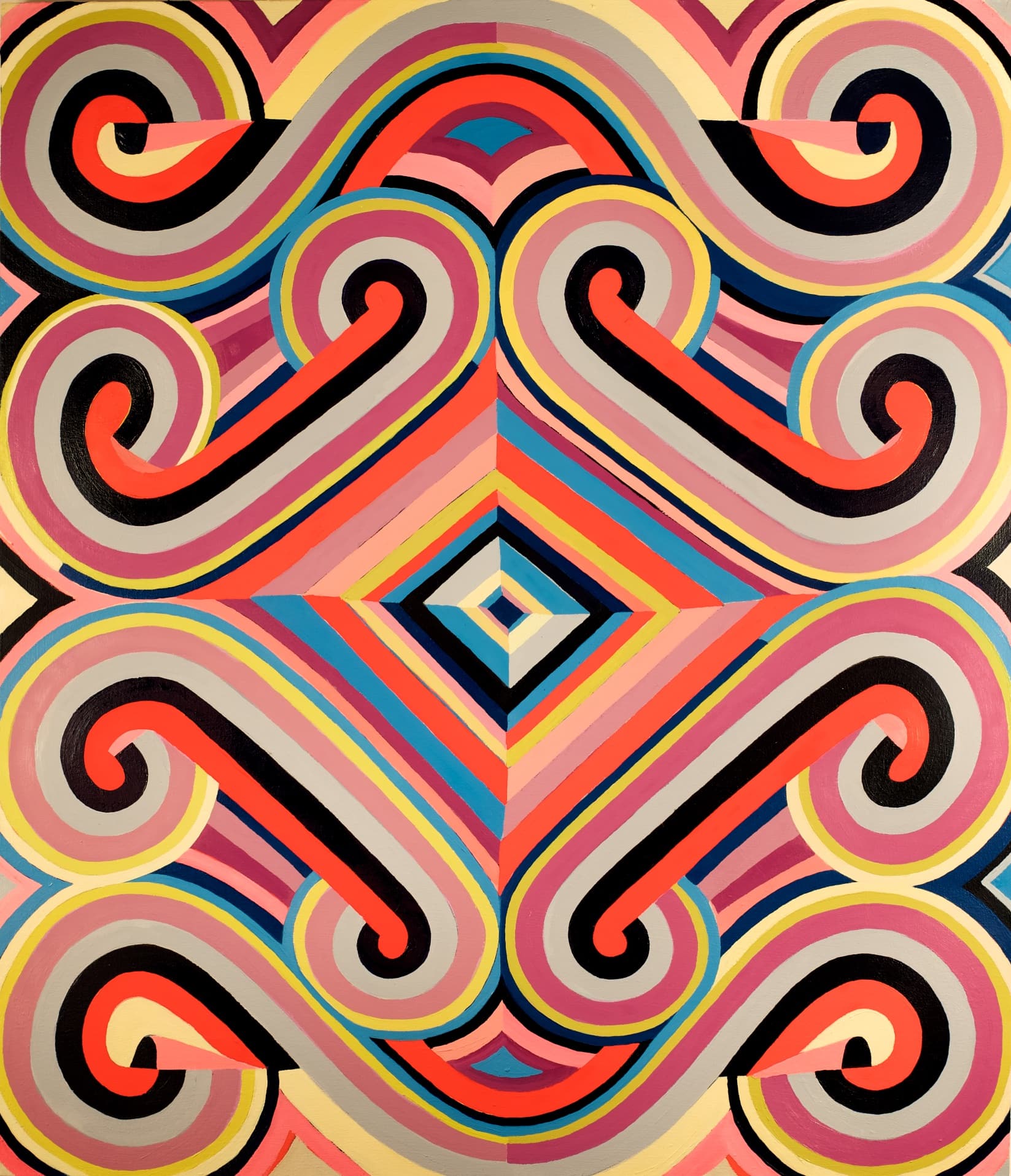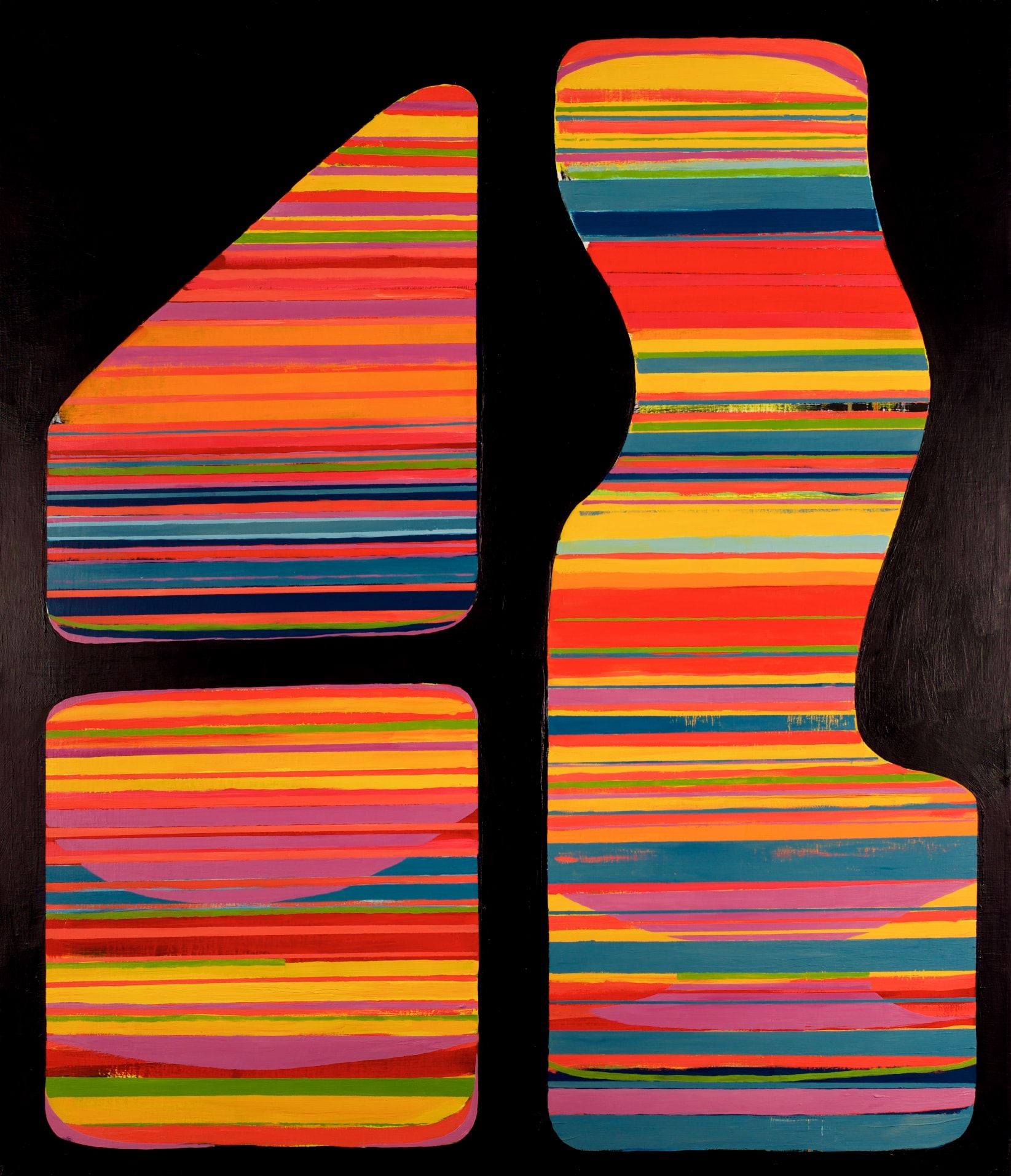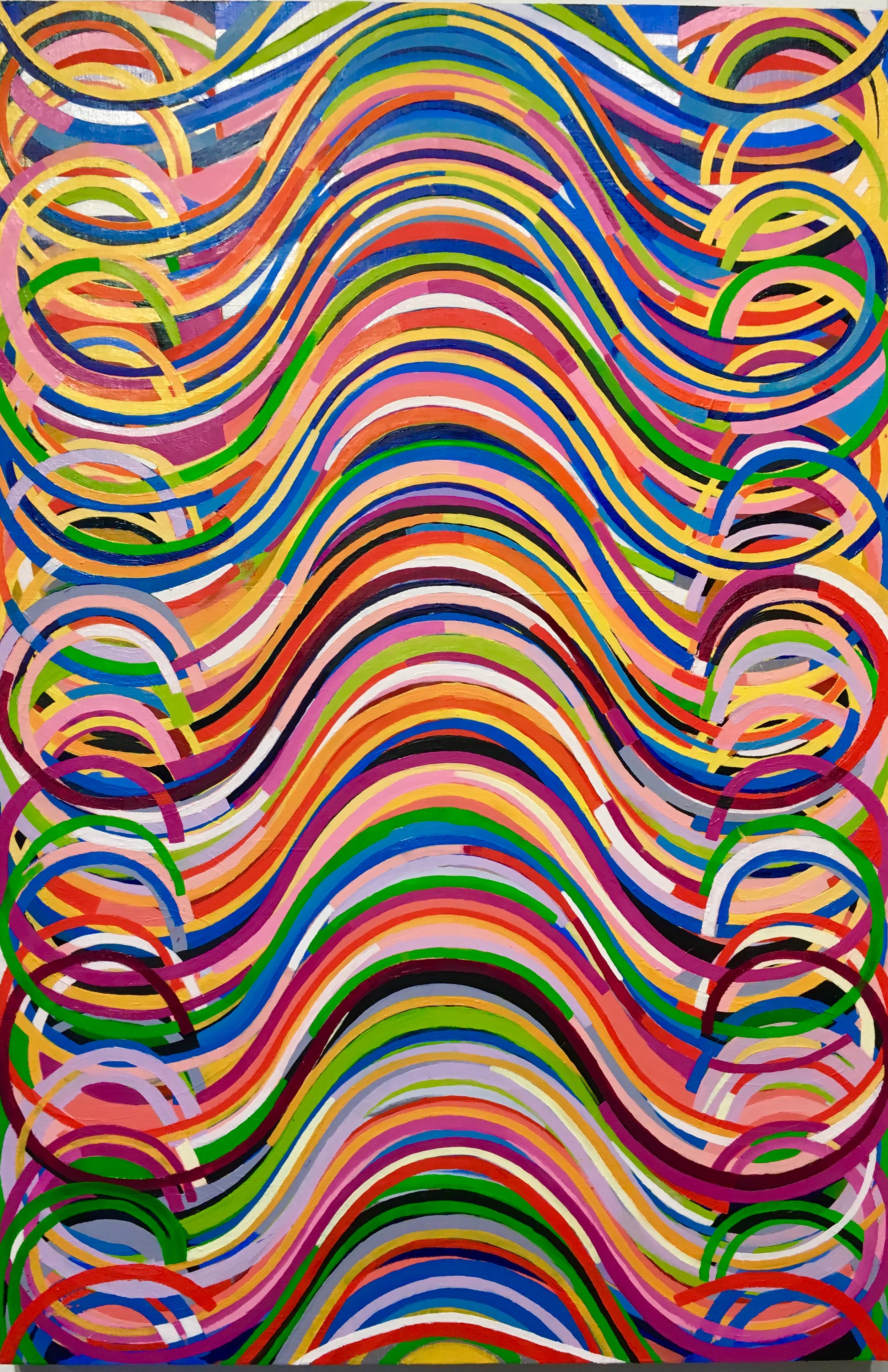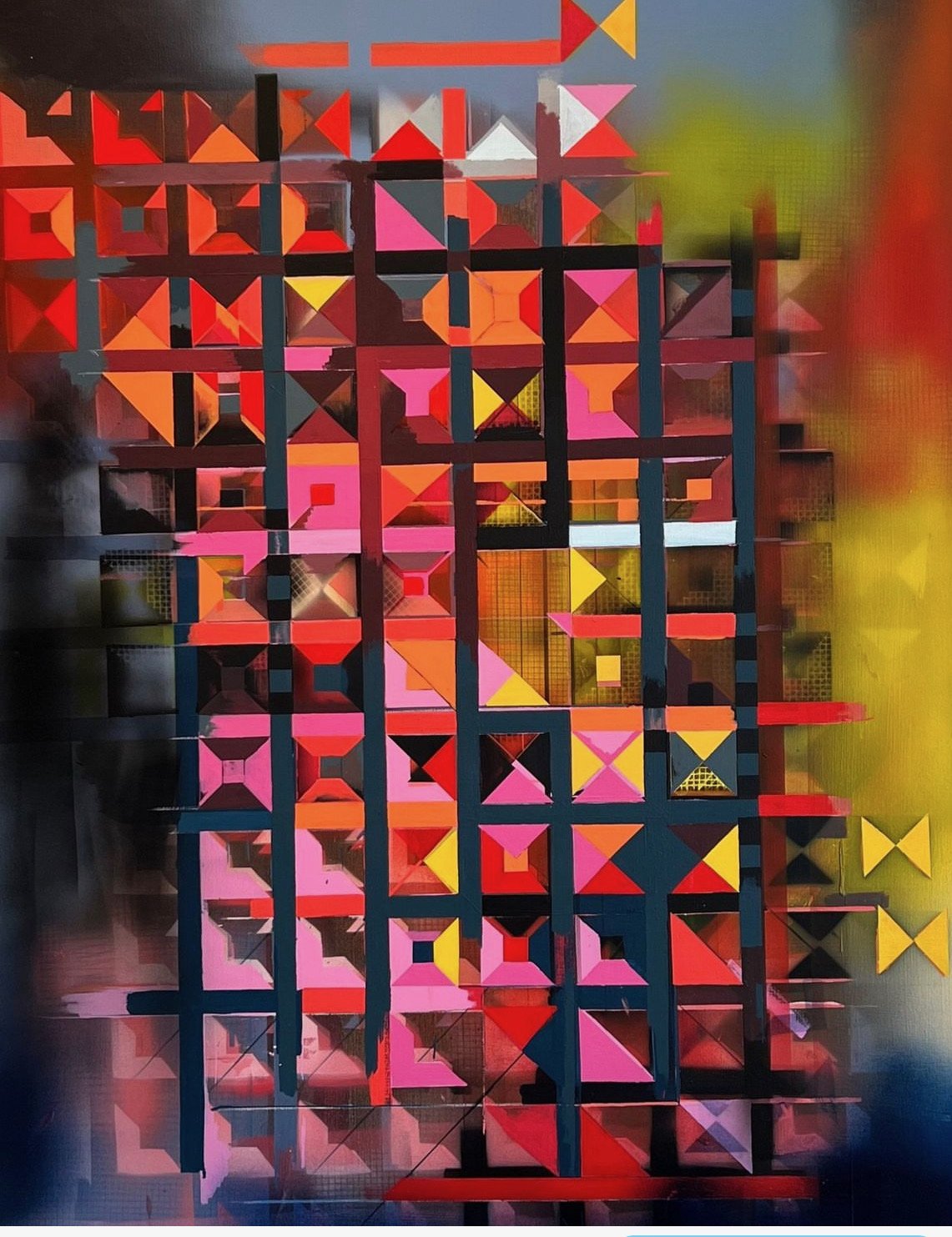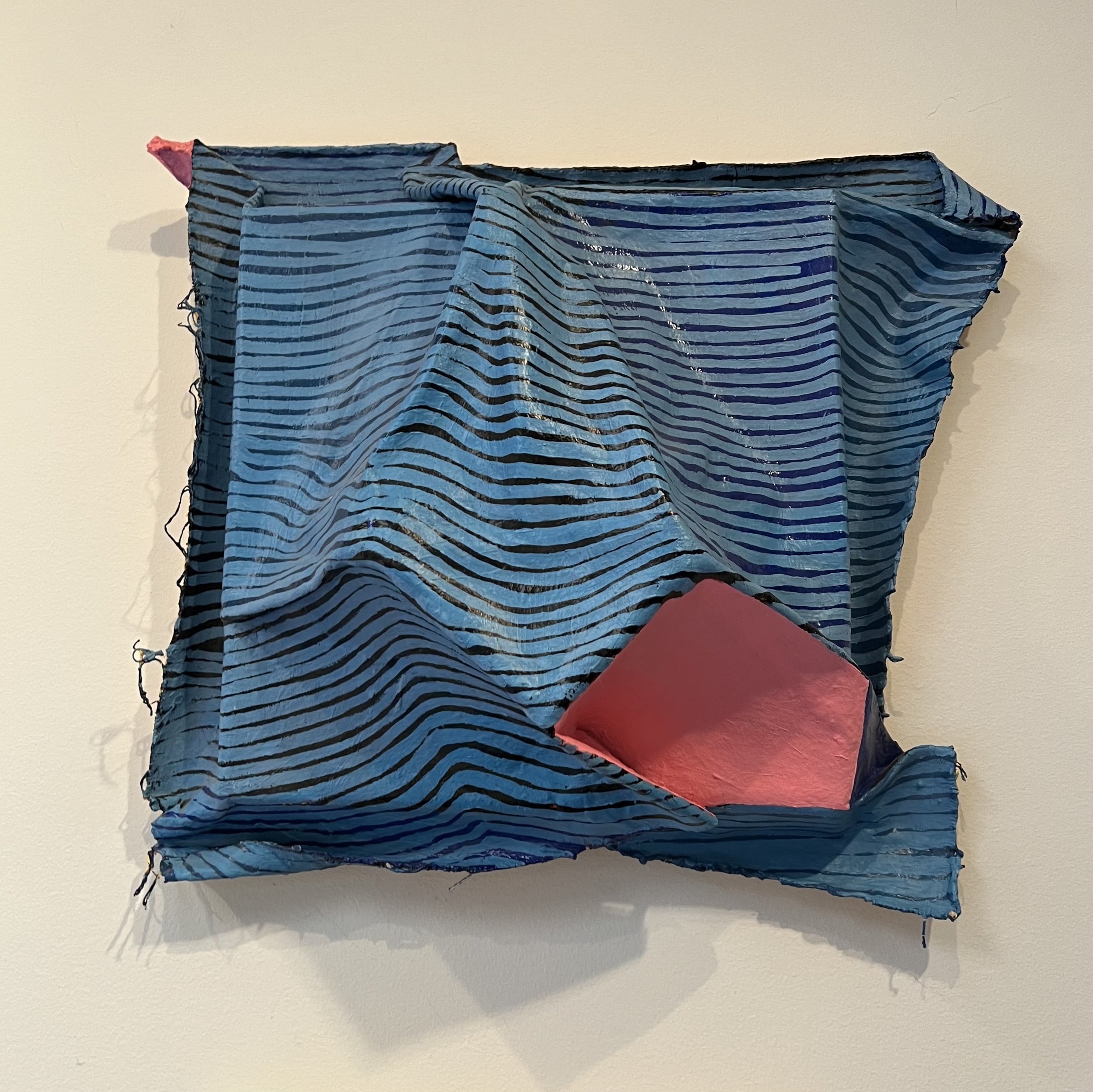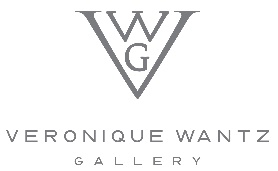Who is, or has been, the biggest influence on your art?
I had a few important influences as a young artist, the first being my Grandmother Violette, who made things herself throughout her life—including painting, being a mostly self-taught artist. My first Professor at Ridgewater College (where I now teach) was Robert Mattson, and he instilled in me the idea that being a painter is a lifelong pursuit. But most importantly, throughout my professional career my partner and fellow artist, Lisa Bergh, has been a constant force of artistic vision and creative integrity.
What inspired you to study to become an artist?
Like many people, it was a self-fulfilling prophecy of being told that “I should be an artist” anytime I had a pencil in hand. Later, something clicked while in the painting studio as a student, where I had that “loss of time” feeling, spending hours upon hours making mistakes and discovering paths of inquiry.
How long have you been working with your medium?
I’ve been working with both oil and acrylic paint for 30 years. I’m always making new discoveries while perfecting the skills I hold important.
Where do you get your inspiration for your work?
I don’t know that there is a single place for inspiration, and I don’t look for it very hard. Work is what informs work, so my best approach is to dig into a process and hope to stay buried within it long enough to define what isn’t inspiring. It’s why I don’t like to have many gaps of time in my studio practice. There is a period of “wind-up” while making that requires focus and intent. A lot of people give up during the “wind-up”, because it’s uncomfortable, and feels like failure.
What is your creative process like?
It is a lot of trial and error, and a willingness to do something wrong in search of the right “right”. It’s why I love painting—painting is a completely illogical endeavor, and the threshold between a good decision and a bad one is razor thin, or even paradoxical, as it’s often the wrong move that informs a path to something new. It’s also something that is hard to define or be specific about, but generally there is a mode of initial gestures or translation of structure from a source, and then a period of building up and definition of boundaries (formal and expressive), and lastly a resolution or method of solution. You could call it a rough draft, revision, and final output. Edits are what are interesting.
What are the most important factors you consider when you create your work?
A painting needs to sustain my interest, which is why some things stay in the studio a very long time. I like looking at unfinished work, because it has the potential to go in so many different directions. I also don’t like to repeat the same solutions, and I’m constantly striving for new areas of investigation. Often that means looking back at unfinished ideas or structures with new eyes, because sometimes a different solution arises from the chaos of the studio.
How has your practice changed over time?
I think as you progress, your intuition becomes more subconscious, and the work can happen more automatically. I love when I revisit work and find areas within compositions that are successful in ways I didn’t initially recognize.
What do you think is the most difficult aspect of making work? Why?
Negotiating my initial expectations and vision with the path of creation that actually happened is always a struggle. Nothing is ever exactly as planned, and quite often I’m surprised what keeps my attention. Allowing and understanding that the painting defines its own agency is important.
What part of creating art brings you the most enjoyment?
There is a moment in the painting process when something comes into view just enough where I can recognize that a solution or path has been established, and that is a satisfying experience. It becomes “finished”, even while there is a lot of work left before I can walk away.
Which of your works is your personal favorite and why?
The painting “Good Times” was the kind of interaction and mode of communication that I’m most interested in, yet often those impulses don’t work out. There is a lot of non-verbal thinking about painting and looking at painting that absolutely haunts me, and I’d be a little disappointed to actually articulate that feeling to the point where other people understood too well. I think the space separating those two things is why we all still like painting as a thing.
Of all your travels, which city or place inspires you the most? Why?
I’m inspired by anything that is a new experience, but I’d say New York is pretty magical. I still have a few places yet to visit. The act of visiting a great museum is an essential experience. Space, time, and juxtaposition of people and objects are all lined up in the right way.
What is something quirky or unexpected about you that most people don’t know?
The mystic cleric Rumi said “Sell your cleverness and buy bewilderment”. I was really ecstatic to hear that advice, as I tend to be most happy when lost in a strange thought process or distracted by a new visual phenomenon. Making sense of things is over-rated, and maybe pointless.

